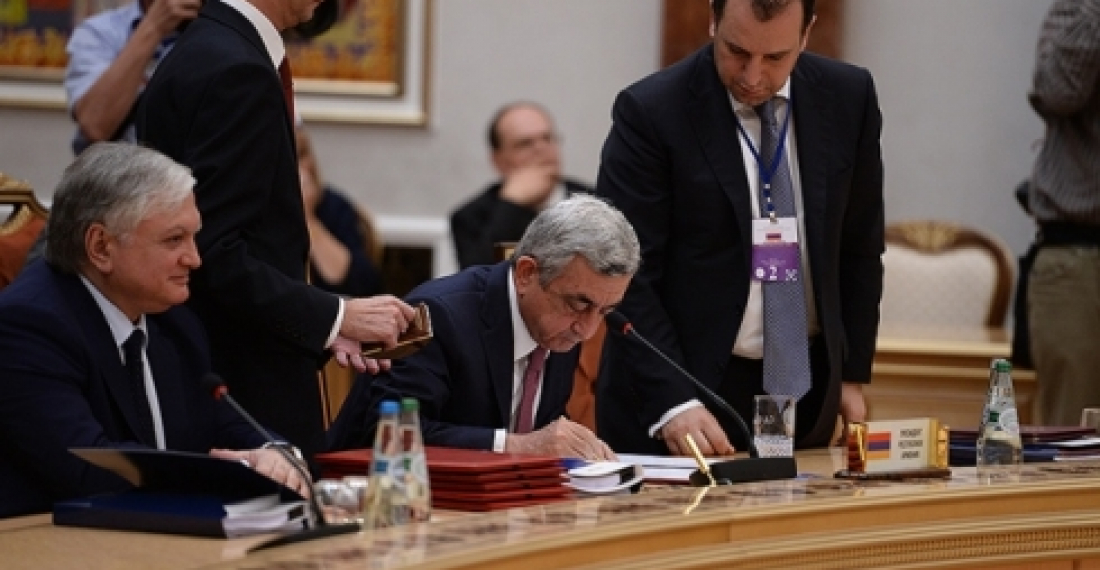Armenian has signed the treaty of accession to the Eurasian Economic Union (EEU). The signing took place at a summit of the EEU which was held in parallel with a summit of the CIS in the capital of Belarus, Minsk, on Friday. President Serzh Sargsyan signed the treaty for Armenia whilst the Presidents of Russia, Belarus and Kazakhstan signed on behalf of their respective countries.
Russian President Vladimir Putin said, "In our view, Armenia is ready to operate in the Eurasian Economic Union on an equal footing with Russia, Belarus and Kazakhstan". He added that "within a relatively short period of time, since the autumn of 2013, our Armenian friends have ... brought their national legislation into conformity with the norms of our integration structure."
Putin and Sargsyan expressed hope that the treaty will be ratified by the parliaments of the EEU's three member states by the end of this year. The Armenian president said his country should be able to "start working from January 1" as a full-fledged member of the EEU.
Both Armenia and Russia are hoping that EEU membership will help stimulate the Armenian economy, but critics of membership are very doubtful and say that the new trade rules will considerably damage the already weak Armenian economy. Thousands participated in an anti-government demonstration in Yerevan on Friday calling for the resignation of the Government. The protests were led by leaders of the three main opposition parties.
source: commonspace.eu
photo: President Serzh Sargsyan of Armenia, signs the accession treaty to the Eurasian Economic Union in Minsk on 10 October 2014. (Picture courtesy of the press Service of the President of Armenia).







